Book-worthy Ideas
(Posted on Tuesday, August 1, 2023)
By Josh Bernoff, author of Build a Better Business Book

Is your idea worth building a book around?
Given the amount of effort required to plan, research, write, and promote an effective book, this is an important question. If your idea is too small, or too vague, or not interesting enough, then creating a book around it is a fool’s errand. But if the idea is solid, with major consequences, then writing a book might be just what you need to get people talking about it.
So let’s dig into what makes a book-worthy idea.
What is an idea?
That’s one of those questions that seems both obvious and confusing. But here’s my proposed definition:
An idea is a previously unsuspected connection among concepts that leads to nonobvious consequences.
This applies to every nonfiction book I’ve ever worked on—fifty books in total. Ideas are always built on existing concepts. What makes the idea interesting is a new way of looking at those concepts. What makes it worth working on is that it has consequences: once you understand the idea, you need to change how you think, how you plan, what you do, and how you talk about it.
For example, David Epstein’s book Range: Why Generalists Triumph in a Specialized World (Riverhead Books, 2019) explains how the most successful people pursue and connect a diverse collection of expertise rather than specializing in one area. James Clear’s book Atomic Habits: An Easy & Proven Way to Build Good Habits & Break Bad Ones (Avery, 2018) is built around the idea that changing habits can generate remarkable results, along with a systematic way to understand and implement those changes.
The best ideas like these are simple—not simplistic, but simple enough to explain in a sentence. And they have three other qualities: they are big, right, and new.
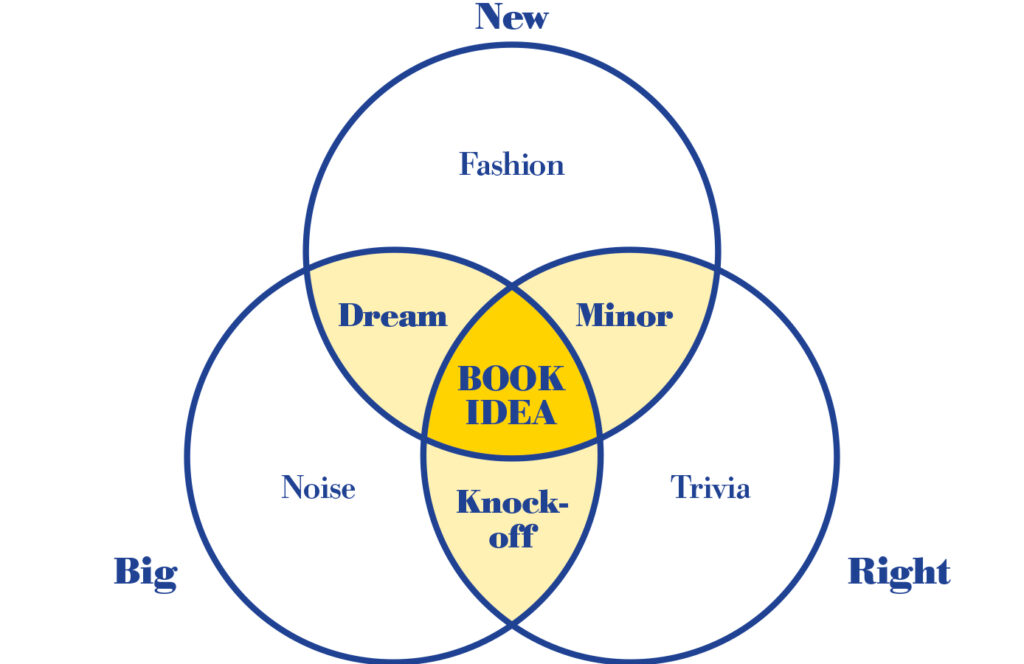
Big ideas have consequences
It’s tough to write books about small ideas—you’ll run out of material. For a book that matters, you need a big idea.
That big idea can still be limited to a specific field of study, like marketing, direct marketing, or even email marketing. But it must be big enough to have facets and consequences worth writing about at length. It must create ripples. You can write a whole book about those facets, consequences, and ripples and then build a career off of your expertise in them. You’ll never run out of material.
The right ideas are believable
Here’s an idea: Social media will make the world a better place. That’s an attractive concept, but the evidence is mounting that it’s just not true.
For an idea to be persuasive, you need evidence that it’s worth taking seriously. That evidence could be data. It could be examples and case studies. It could be a synthesis of proven ideas from other people. But there has to be evidence.
New ideas stand out
To be successful, a book needs to be differentiated. You have to be able to finish the sentence, “This is the first book that . . .”
Now, there are no completely new ideas. But there are always ways to differentiate your book. Maybe you’ve written the first book about how to use AI to write movie scripts. It won’t be the first book about scriptwriting or the first book about AI, but it will still be unique in its field.
You can distinguish your idea by applying it to a new audience or a new problem, or by being the first to describe it in a step-by-step way. There are lots of ways to differentiate. But unless you differentiate your idea, you’re just a copycat. No one is well known as the second person to come up with an idea.
Simple, new, big, and right ideas spread
Simple ideas are easy to repeat.
Big ideas have far-reaching consequences.
The right ideas stand the test of time.
New ideas pique interest and attract attention.
Combine all of these, and you’ll be able to build a solid book whose premise people are likely to understand, care about, and repeat. That’s a formula for an idea that catches on.
Josh Bernoff is the author, coauthor, editor, or ghostwriter of eight business books including the social media bestseller “Groundswell.” Book projects on which he has collaborated have generated over $20 million for their authors. His blog, at www.Bernoff.com, featuring daily posts of interest to authors, has generated 4 million views. He lives with his wife, an artist, in Portland, Maine.
How to Get the Media to Promote Your Book: Proven Strategies to Capture Media Attention and Skyrocket Your Book’s Visibility
(Posted on Saturday, June 17, 2023)
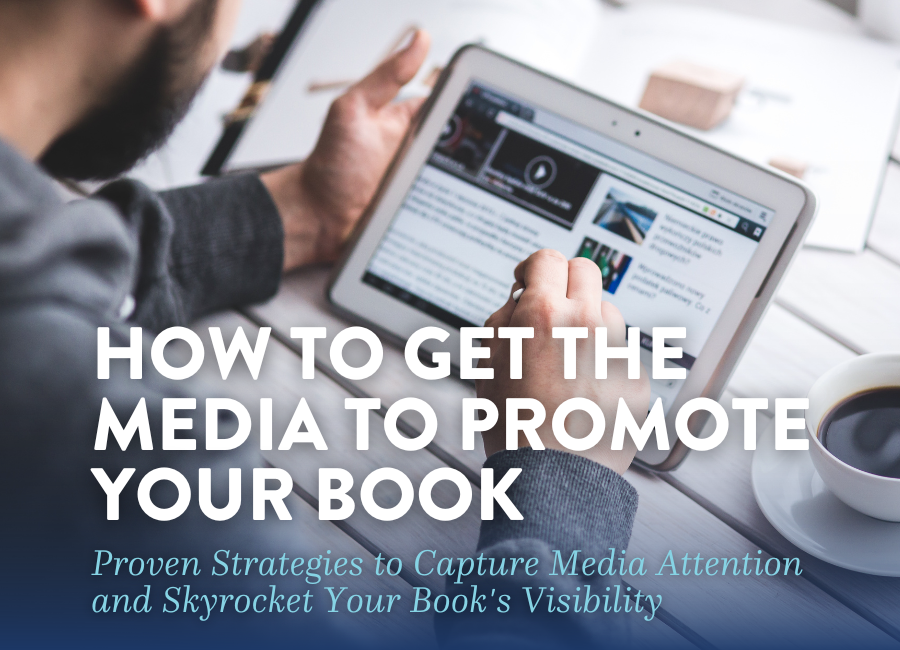
Author: Eric Schurenberg, Amplify Publishing Group Editor-in-Chief, Former CEO of Inc. and FastCompany
Congratulations! Your book is now all but finished—the manuscript has been approved, edited, and sent off to the printer. But you’re not done yet.
Now you have to make sure the world knows your baby is born, soon to be ready to be read. The best way to spread the word beyond your own network is through the media—the complex, ever-evolving, multiheaded ecosystem of traditional journalists, podcasters, newsletter writers, bloggers, and influencers. Their reach can not only help build your book’s sales but also raise your profile. The book you created can open many doors for you as a thought leader, but it won’t do so if no one has read it. And it won’t be read if no one knows it’s out there.
Your book publisher may undertake some publicity for you, and you can always hire an independent publicity firm. But be realistic. The overstretched publicity staff inside a traditional publisher must promote many books besides yours—some of them by celebrity authors who will always get the lion’s share of attention. The in-house publicist’s first goal is to maintain their relationship with bookers and editors at media outlets, not promote your book.
Publicity firms can give you more attention, but they are expensive. You should expect to pay between $5,000 and $10,000 per month. And they cannot work miracles. You’re likely to find that even professionals have a hard time rising above the flood of books swamping media inboxes each month. To put the maximum effort into publicizing your book, you will need to wade into publicizing yourself in tandem with that of your publisher or hired PR firm.
Now, that may sound quixotic. How can you have any effect when you are new to the field and don’t have a contact list full of media stars? Well, you’re probably not going to get yourself booked on Today or reviewed in the Washington Post right out of the gate. There is simply too much competition. Steve Levingston, the Post’s longtime non-fiction book editor, has just half a dozen book review slots a week and estimates that he gets 100 pitches a day from authors and publicists seeking reviews. But if you start at a realistic level—building a foundation among smaller media outfits, practicing your pitch, and building towards your ideal outlet—you might just do better than you expect.
Start by creating a press list that hits your target audience where they get their information
You almost certainly know your audience better than any publicist, and you have the clearest idea of where they get their media. Focus on those outlets. This will help you narrow down the number of options and find the outlets best suited to cover you. If you’re not sure, consider books that compete with yours: Where were they reviewed or otherwise covered? Find out the names of the editors or producers responsible for assigning or scheduling that coverage. Don’t limit yourself to just one platform, such as only print or only podcasts. The odds are that your audience gets its information on lots of different platforms. Explore them all.
Before pitching anyone in media, get to know them
Once you’ve identified the decision-maker you want to pitch, study their work. Do your best to understand what interests their audience and construct your pitch accordingly. In the introductory paragraph of your email, let them know that you appreciate their work and clearly explain how your book relates to their interests and/or beat and why it would be of interest to their readers or viewers.
Craft a pitch that helps you stand out
Remember that everyone in this communication chain is pressed for time, including you. So get to the point quickly. It helps to create a core pitch that you can customize for each different outlet but that you don’t have to recreate each time.
Before you put a finger to your keyboard, ask yourself the following questions:
- What might inspire this journalist?
- What makes my book or message topical?
- How do I stand apart?
- What problem do I or my book solve?
- What do I want to happen after I send this email?
Open your email by explaining why you’re reaching out and letting your contact know that you follow their work and understand their audience. But keep it short. Then, offer a brief overview of your book, emphasizing why it’s especially newsworthy and why it holds special meaning for your contact’s audience and your contact in particular (if you can).
Be sure to give reasons why you, as an author, are worth paying attention to. The reasons could include your professional credentials, past press you’ve received, the size of your social media following, the endorsements your book has received, or any combination of the above.
Close with an ask that
a) they are likely to be able to grant and
b) helps them do their job.
At my former shop at Fast Company, for example, one editor was responsible for assigning stories relating to design, another for content related to social impact, and yet another managed non-journalist authors who contributed articles under their own byline. All three of them are barraged by publicists seeking attention. You’ll have a much better chance of being heard over the noise if you pitch your book on design thinking to Design Editor Suzanne LaBarre rather than to Social Impact Editor Morgan Clendaniel or to Editor-in-Chief Brendan Vaughan. Even if they don’t take you up on your pitch, they will appreciate that you took the time to avoid wasting theirs.
Follow up regularly, but not too regularly
Wait at least a week, if not two, before following up on any email you send. Be aware that it’s not unusual for a journalist to take several days or weeks to respond and, in many cases, not to respond at all. Don’t be discouraged. Instead, be thoughtful and professional when following up—try waiting until you have an update or new information to share with the journalist.
If you’ve followed up with someone a few times without a response, it’s time to move on to the next opportunity. You can always return to this same contact later if you have any game-changing developments to share.
Accept graciously when someone declines to work with you. You have everything to gain by keeping the relationship positive. For example, you can bounce back by pitching yourself as a subject-matter expert who can give commentary on a specific topic on the journalists’ beat. That kind of mention gets your name in print and gives you the chance to request your book and the purchase link included in the article. In many publications, you can propose contributing a column. Online publications are particularly fond of listicles—for example, “5 Ways to Engage Remote Employees” or “Top 10 Pieces of Advice for New Bosses.”
Consider offering giveaways, especially to radio, podcasts, and influencers. Giveaways garner interest in your book and have the added value of generating possible consumer reviews if the readers post on Goodreads or Amazon.
Play the long game.
Think of media coverage and the pitching process like pyramids. You need a strong, wide foundation in order to effectively build up to one great point at the very top. Start by pitching smaller outlets that make sense for your target audience. Outlets like local newspapers and niche podcasts can be great for this purpose. They can help establish you as a credible source of content and provide some social proof to journalists up the food chain. Plus, it allows you to practice being interviewed about your book with relatively low stakes.
Once you feel you’ve built a sufficient foundation, transition into midsized media, like regional newspapers, local TV programs, and other reputable outlets that stop short of being household names. After checking that box, you’re ready to go after the most competitive outlets, like major newspapers, popular podcasts, and primetime news programs.
Finally, remember that there are many ways, besides sales, to define your book’s success. The act of writing was no doubt a powerful way to crystallize the ideas you wanted to bring to light, and your book now serves as persuasive confirmation that you have something of value to say. But a book is likely to be just one element in a thought leadership portfolio that includes speaking, consulting, and board memberships. Maintaining a healthy relationship with the media can help on all those fronts.
In other words, remember that you are pitching the media, not just your book. You are also pitching yourself. So take the time to learn what makes each journalist or media outlook tick, and do your best to be helpful to them—as you would any client. Be courteous, persistent, empathetic, and, above all, patient, and you’ll see results.
Eric Schurenberg is Amplify Publishing Group’s editor-in-chief and a media executive, award-winning journalist, and the former CEO of Mansueto Ventures, the owner of Inc. and Fast Company media properties.
Cracking the Code: The True Return on Your Investment in a Thought Leadership Book
(Posted on Tuesday, May 2, 2023)
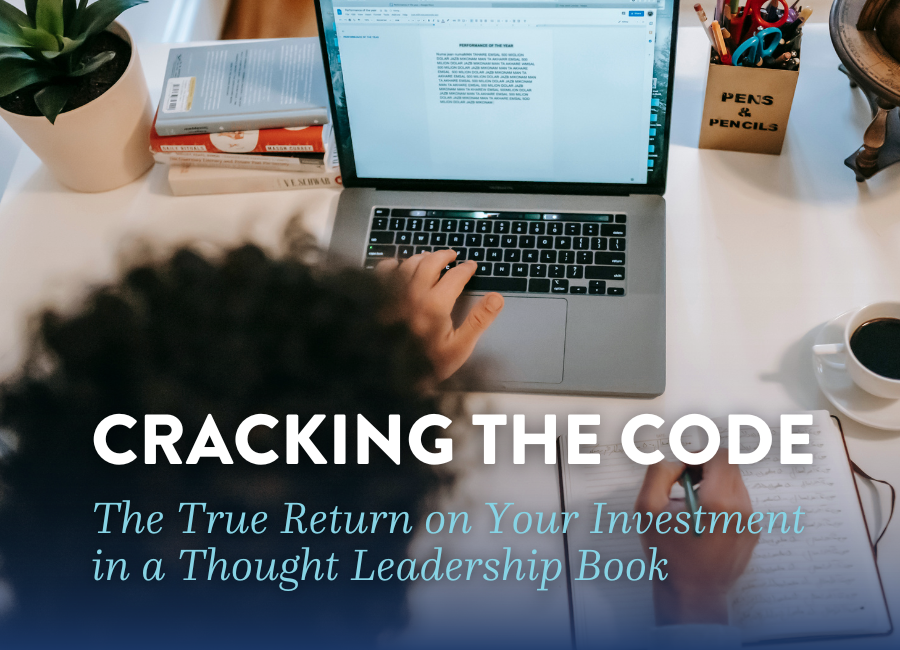
Author: Eric Schurenberg, Amplify Publishing Group Editor-in-Chief, Former CEO of Inc. and FastCompany
When I talk to first-time authors about creating a book with Amplify, one question inevitably arises: “Will my book sell enough copies to make a positive return on my investment?” I don’t think it’s the right question, exactly, but I get it. So, I give the author a choice of two replies: the strictly factual one and the useful one.
The factual answer is that sales depend on a host of imponderables. To name a few: the breadth of your book’s audience appeal at the time of publication; the size and devotion of your following; the elbow grease you’re willing to put into marketing; the presence or absence of competitive titles at the time of release; and the book’s staying power over time. Because Amplify’s policy on bulk sales is particularly favorable to authors (you keep 85 percent of the cover price versus 70 percent at the typical competitor), another factor is how likely your book is to win bulk sales.
Still, let’s be honest: Bestsellers are vanishingly rare. If your main reason for writing is to get rich off of book sales alone, you’re playing some mighty long odds.
There is a more useful answer, though, and it starts with another question: For you, what really counts as return? You would not be reading this post if you didn’t already believe
a) that you have knowledge others find valuable and
b) that you get personal satisfaction out of deepening that knowledge and sharing it.
I’ve seen how instrumental a book can be in raising an author’s profile and burnishing their reputation. I’ve seen that building a personal brand delivers significant financial return. I’ve also seen how deeply fulfilling it can be for an author to research, build unique knowledge, and deliver a book that serves a personal mission. In other words, if you can measure success by something other than the cash registers at Amazon or Barnes & Noble, let’s talk.
Start by thinking about what a book is. It is a sustained, deep crystallization of the unique ideas and perspectives you bring to the world. Even in a digital world, a book carries magic. It has an impact. It changes minds. And it endures in a way that more transitory content can’t. Think of the books that have moved you. In the business world, Good to Great, The Big Short, Moneyball, and The Hard Thing About Hard Things are still quoted today, decades after their launch. In personal growth, Don’t Sweat the Small Stuff and Daring Greatly still inspire years after publication. You can’t say the same about those authors’ decades-old blog posts or podcast episodes.
The very effort involved in creating a book solidifies any existing reputation you have as an expert and can actually create a new identity, which can have a powerful payoff. Take, for example, David Pachter, a serial entrepreneur whose book Remote Leadership discusses how business leaders can embrace a remote workforce and build a company culture to support it. The book landed just as the COVID-19 pandemic dispersed workers to home offices, and publications like Time, Forbes, and Business Insider devoured it. In an instant, Pachter became more than just a small business executive. The book and the exposure it triggered established him as an oft-quoted thinker on one of the most powerful trends in workplace management.
Even without a media splash, a book can serve as a calling card—a memorable way to establish both your credibility and your unique ideas. Alisa Cohn, a top-ranked executive coach, introduces herself not by naming the CEOs she has coached but by name-dropping her book From Start-up to Grown-up. She explains, “In a matter of seconds, the book cements my credibility—because a book gives you credibility like nothing else—and my area of expertise, which is helping startup founders make the journey to full-fledged CEO.” Since the book was published, Alisa has found herself forced to turn away business from start-up founders eager to get her guidance on their journey.
More than just a calling card or a repository of your ideas, a book can be the source for a whole platform of ancillary thought-leadership content, including webinars, online courses, social media newsletters, and podcasts. For example, Ben Lytle, the visionary former CEO of healthcare provider Anthem, mined his book The Potentialist to create a three-part webinar series about the future of higher education. Kate Purmal reengineered whole chapters from the audio version of her personal development book, Composure, into podcast episodes. If listeners liked what they heard, they could order the audiobook. The added exposure reinvigorated sales of Composure, which in turn sparked other business for Purmal. “As more people began to get the book in their hands,” she says, “I began to get new inbound opportunities for speaking, executive coaching, and hosting internal corporate programs and workshops.”
More than anything else, the investment you make in a book is an investment in yourself. It is a bet that the hard-won knowledge you have acquired in your life—the stories you have to tell and the ideas you have to share—is of value to others. If you’re right about that, the financial ROI can manifest in any number of ways besides book sales, as it has for many Amplify authors. A book is also a bet that you will find satisfaction in assembling your knowledge and life experience into one coherent work of literary art. If you’re right about that, the ROI there may be harder to quantify, but it’s real. There’s only one way to find out.
Eric Schurenberg is Amplify Publishing Group’s editor-in-chief and a media executive, award-winning journalist, and the former CEO of Mansueto Ventures, the owner of Inc. and Fast Company media properties.
5 Benefits of Collaborating with a Ghostwriter to Bring Your Book to Life
(Posted on Sunday, April 16, 2023)
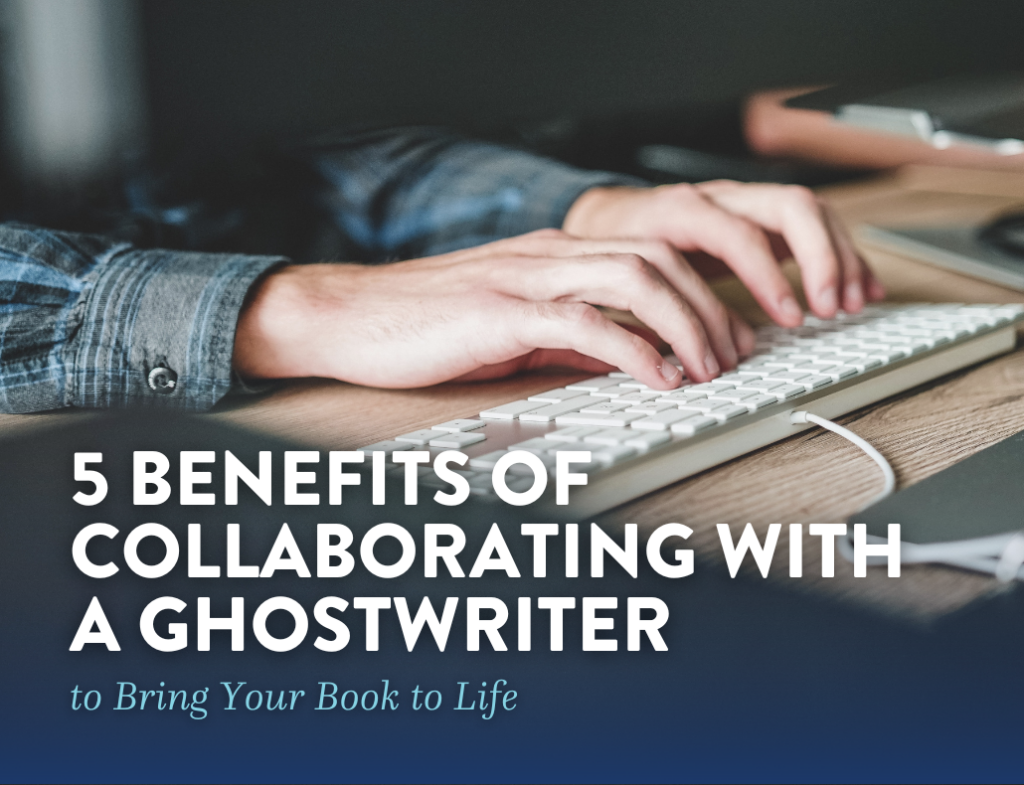
Ghostwriters are incredibly valuable resources for authors who want to share their ideas, stories, or expertise with the world but don’t have the time or inclination to write a book themselves. At Amplify, we employ a meticulous interviewing process to align our authors with skilled ghostwriters who prioritize our client’s vision, objectives, and tone.
If you’re weighing the pros and cons of hiring a ghostwriter to carry the writing lift on your book, here are five crucial benefits that hiring a ghostwriter brings to the table:
- Expertise: You might be the leading authority in your field and an excellent communicator, but putting expertise on paper isn’t as easy as it might seem. Ghostwriters are professionals who specialize in crafting compelling content and communicating complex ideas—skills that are crucial when writing long-form content like a book.
- Efficiency: Writing a book takes time, which is a precious commodity for thought leaders. Even if you have the ability and interest to write your book, your schedule might not allow it. A ghostwriter will handle the writing process from start to finish, allowing your book idea to come to fruition significantly faster than it otherwise might have.
- Objectivity: A ghostwriter can provide a fresh perspective and help you see your ideas in a new light. With the benefit of their expertise and point of view, your manuscript will end up more well-rounded, balanced, and accurate.
- Confidentiality: Ghostwriters usually operate under a confidentiality agreement, which means they won’t disclose their involvement in the writing process unless you want them to. This can be important for thought leaders who want to keep their writing process private.
- Stress reduction: Hiring a ghostwriter keeps your deadlines manageable and allows you to focus on other tasks, like exploring publishers or building your personal brand. Though you’ll be responsible for reviewing outlines, research, and chapters as they progress, you can relax knowing that your book is consistently moving forward even on the days you don’t think about it.
If you have a book idea but aren’t sure how to execute it, hiring a ghostwriter might be the solution. Interested in learning more about ghostwriting services or need assistance figuring out if this is the best path for you? Use our contact form to connect with a member of our team.
Amplify Author Spotlight: Val Ries
(Posted on Monday, April 10, 2023)
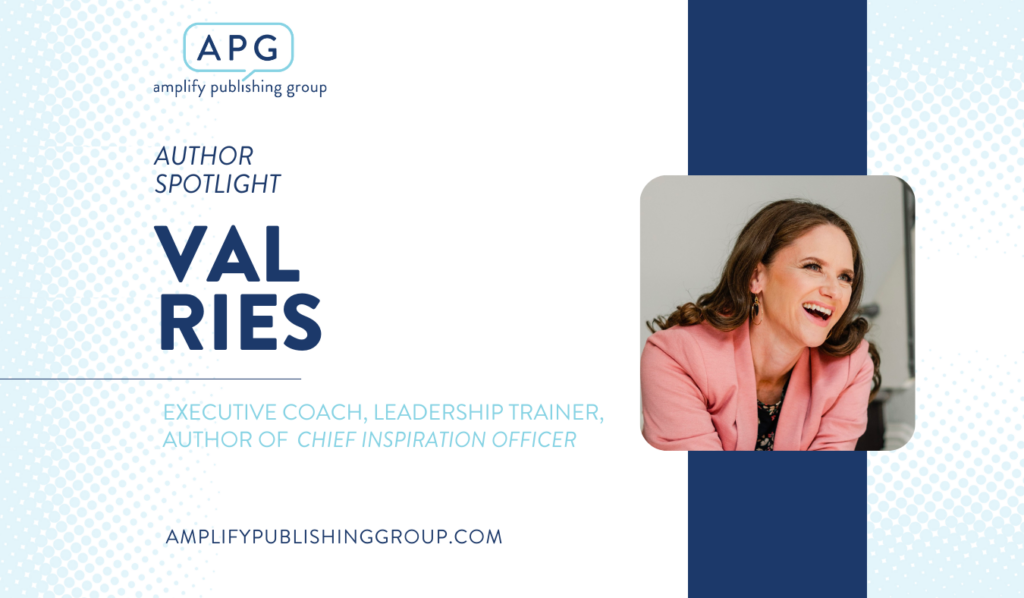
We are excited to feature Val Ries, author of Chief Inspiration Officer, as this month’s Amplify Author Spotlight!
Founder of Executive Muse (an executive coaching & management training company), Val helps leaders become the boss everyone wants to work for.
Starting her career as a registered nurse, Val transitioned to medical sales where she was quickly “thrown” into management. After earning her MBA and coaching certification, Val began to learn what it takes to intrinsically motivate others and ensure they actually want to come to work.
Through Val’s work with Executive Muse she coaches and trains high-impact leaders, at startups, Fortune 500 companies and small businesses. Her goal is to help them accomplish their vision of building powerful micro-cultures—and becoming a leader who increases productivity, decreases attrition and elevates employee engagement.
Val resides in the Bay area with her kids, husband and dog.
Learn more about Val’s publishing journey, her advice to authors, and the parallels she draws between leadership, writing, and dance below!
What advice would you offer to someone that’s currently working on a book?
I would advise you to not worry about getting your ideas perfectly organized when writing a book. Instead, just get them out. To organize my own thoughts, I start by creating a mind map on a poster board with the main theme in the middle and connecting bubbles for related ideas. This process helps me see where I can take the book and what different chapters might look like. From there, I just start writing and getting everything out, knowing that it’s better to have something to edit than nothing at all. So don’t be afraid to get your ideas down on paper, even if they don’t end up in the final product.
What most surprised you about the writing process?
In my experience, what surprised me the most about writing was how long it took. With the help of a writing coach, it took me 18 months to fully articulate what I wanted to say and start collecting stories and evidence to support my ideas. I was surprised by how difficult it was for me to be vulnerable at first and share my personal stories, despite the fact that people often connect with them. Initially, I held back on the vulnerability more than I should have. However, I learned that it’s important to just tell your story and share the story within the story.
When you originally set out to publish Chief Inspiration Officer, what was your goal?
I wrote Chief Inspiration Officer because I wanted to share my frustrations, failures, and the things I learned about being an effective leader. My goal was to get these nuggets out into the world so that others wouldn’t have to struggle through the same challenges I did when I was suddenly thrown into a management position. I wanted to alleviate this burden and help leaders create a healthy work environment. I care deeply about the employee experience and I know how burnout and dissatisfaction can affect both the leader’s morale and health, as well as the overall happiness of the company. By getting my message out there and teaching these techniques, I hoped to help the leader, the employee, and ultimately the company – a triple win.
Did Chief Inspiration Officer lead you to any unexpected opportunities?
In my experience, I initially worked with corporate companies that were looking for well-defined leadership training programs. However, I was surprised to find that I was also attracting small businesses that didn’t have an internal Learning and Development or HR team. Many of these were startups in between growth phases. I found myself becoming a fractional leadership consultant for them, which was something I hadn’t considered before. I enjoyed working with these leaders who were growing at a fast pace but didn’t have the infrastructure or internal resources to help them put systems in place for management and training development.
I also had the opportunity to meet coaches who were being approached by corporations looking for formal leadership training programs. They learned about my methods and ended up licensing the program through me, which was a pleasant surprise. Now, I’m considering how to scale this part of the business and expand my reach even further.
What is something people may not know about you?
I consider myself an artist in my second life. As I went on this journey of writing and building a business, I found myself getting more excited about the creative process and the behind-the-scenes work, such as designing the book cover. I was determined to find the perfect cover that spoke to my soul and truly represented my work. It took me working with what seemed like five hundred different designers until I found the right one.
Moreover, I’ve noticed that my passion for dancing keeps resurfacing in my life. I feel a sense of excitement and a release of creativity when I hear music and start to move. It’s interesting to see the parallels between leadership, my writing and my passion for dancing. They involve unleashing creativity in myself and my team, being in a state of flow, having fun, and being vulnerable with others.
What are you currently reading or what books do you most often recommend to others?
Well, mine of course; just kidding! I read a lot of fiction books because they provide a much-needed escape from the world of business and culture that I deal with on a daily basis. However, my go-to books for business-related topics are by Daniel Pink. He does a fantastic job discussing culture and his book, Drive, is a favorite of mine. Recently, I picked up a book called, Managing Narcissists, Blamers, Dramatics and More…, by Mark Murphy. It’s important for leaders to know how to manage those who bring down the energy of the team and not let them affect the entire group. I also like Brene Brown, Simon Sinek, and Adam Grant, among others, anyone who is inspiring us to be better.
Amplify Author Spotlight: Kate Purmal
(Posted on Saturday, February 25, 2023)
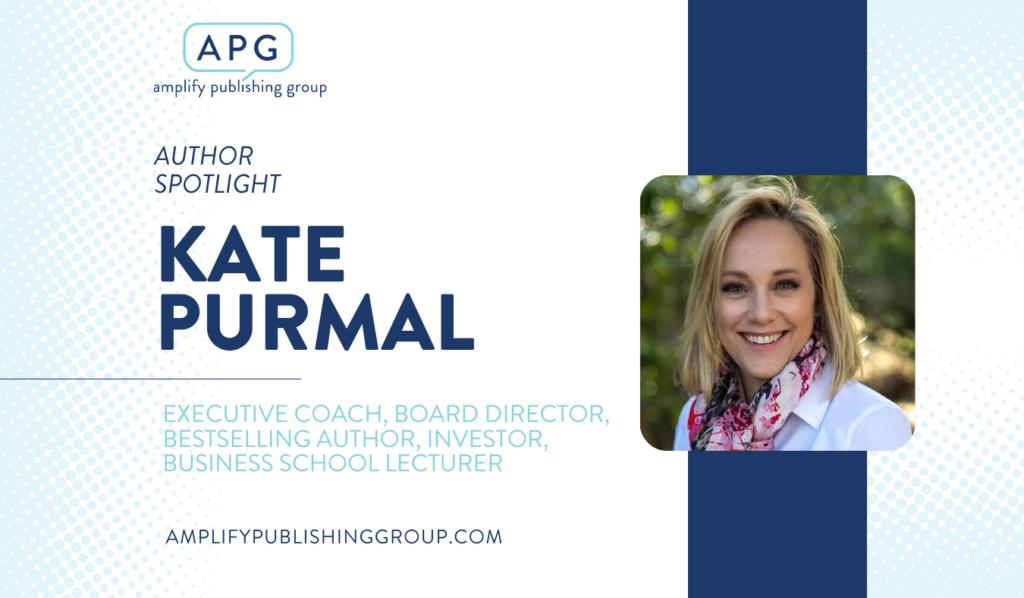
We are thrilled to feature Kate Purmal, a distinguished author and business leader with a wealth of experience in executive coaching, business advising, and board governance, in this month’s Amplify Author Spotlight. Kate is a Senior Fellow at Georgetown University and a Board Director at ABD Insurance and Financial Services. Throughout her career, she has been an unwavering advocate for diversity and gender equity in the C-suite. Kate’s impressive professional journey began with her role as a member of Palm Inc.’s founding management team and later as a Senior Vice President at SanDisk. Her extensive experience as a CEO and COO for various start-ups and privately held companies has cemented her position as a leader in the industry. We are excited for you to become acquainted with Kate and gain insights into her personal journey in book publishing and her accomplishments with the release of “Composure”.
What advice would you offer to somebody currently working on a book?
Kate: I would suggest focusing on three areas. First, the content itself is crucial. I think having a great developmental editor who can really capture your voice and work in sync with you in terms of getting the editing done is important. When I was working on my book, Composure, I was fortunate to have someone who could connect the threads of my writing and provide me with elevated feedback that made the book sing.
Secondly, there are a lot of logistics involved in the production component, which is something that I didn’t want to focus on or spend my energy on. It’s not something I’m very skilled at either. So, I found it helpful to have a strong partner who could help with multiple steps such as proofreading, layout, cover design, print readiness, etc. Working with a hybrid publisher gave me more control over the editing, editorial review, and cover design, which was important to me. Also, having control over the time-to-market was crucial since I wanted to get the book out quickly. From the time I completed the manuscript to the book’s printing, it only took about eight or nine months, which is fast.
Thirdly, marketing and promotion can be the hardest part of the process. Finding the right partners and experts to work with on that is essential.
What most surprised you about the process?
Kate: I was surprised by how difficult it was to keep my book in the top ten of a given category and how important reviews are for search rankings. As an author, I had to learn that it’s all about rankings. When people search for your book or the topic of your book, whether or not it shows up on the first page or fifth page of the rankings on Amazon determines whether your book gets purchased or not.
Did Composure lead you to any unexpected opportunities?
Kate: Yes, Composure led me to several unexpected opportunities. We launched the book during the COVID-19 pandemic and noticed that people were too exhausted to read professional development books, especially in hardcover and Kindle format. So, I published my own audiobook the middle of last year and put each chapter on my website as a podcast, which I made available for free. People could listen to the chapters sequentially and then buy the audiobook if they liked it. I noticed a pickup in sales, and the book sold around nine thousand copies in just over a year. The momentum came from people getting the book in their hands and reading it. As a result, I received several inbound opportunities for speaking, executive coaching, and doing internal corporate programs and workshops.
When you originally set out to publish, what was your goal?
Kate: My primary goal with Composure was to elevate women and other traditionally underrepresented groups in the C-suite to elevate their executive presence and make them more effective and promotable. I am passionate about this cause, and I knew I needed to write a book because it seemed like the most obvious way to broaden my reach. I decided to be very generous with giving away my work because I had a dual intention of getting my work out there in the world and helping people utilize it to impact their lives positively and profoundly. I also aimed to promote and serve my own business by making the book as broadly available as possible. I am still a huge believer that if you’re doing a book because you want to improve people’s lives, then open-sourcing or generously giving content is a positive approach that will pay off in unexpected ways.
What’s something people may not know about you?
Kate: Something that people may not know about me is that I got married five years ago to a yacht captain. I’ve become a sailor as a result and have joined him on trips up and down the west coast from Alaska to Mexico to Hawaii. In addition to sailing, I love mountain biking, and I’ve taken on these two new hobbies that I never thought I would enjoy.
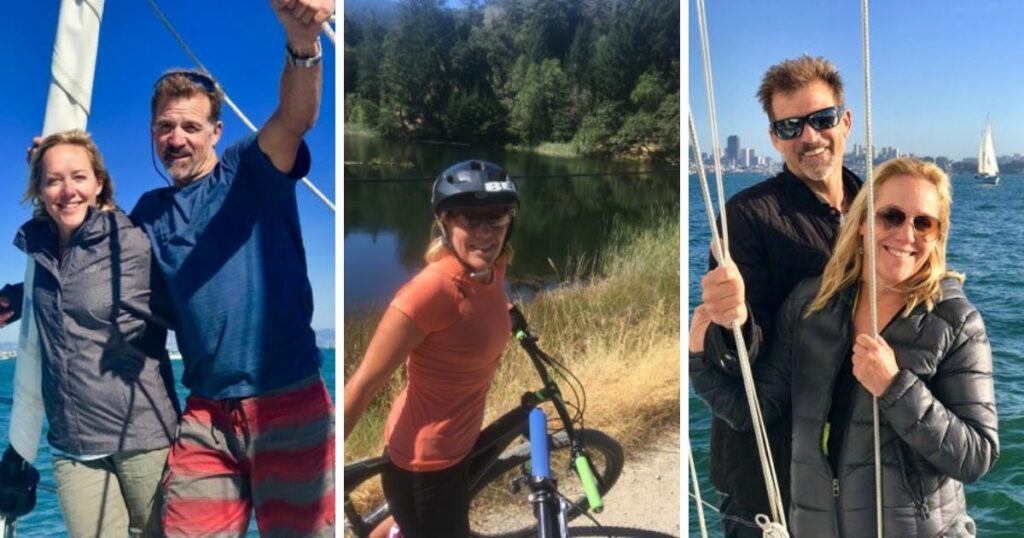
What are you currently reading and what book do you most often recommend to others?
Kate: I am somebody who read ten books at a time and I read a lot of nonfiction right now. One of my favorite books is Business Brilliant, which delves into what distinguishes people who have made tens of millions of dollars from the rest of us. The book offers fascinating insights, and one example is that they network two or three levels above themselves, which is something I never thought of as a play to put yourself in a completely different financial round.
–
Learn more about Composure: The Art of Executive Presence: https://www.composurethebook.com/composure-book-the-art-of-executive-presence
Connect with Kate on LinkedIn: https://www.linkedin.com/in/kate-purmal-922133/
The Crisis Ready Response to Coronavirus COVID-19
(Posted on Friday, March 13, 2020)
“Yes, over my weekends, because crises don’t sleep.”
That direct quote, from a webinar held on Wednesday, March 11, should give you all of the insight you need into the commitment crisis management expert Melissa Agnes has to her work. Melissa is the author of Crisis Ready: Build an Invincible Brand in an Uncertain World and has been at-the-ready with her response to the coronavirus COVID-19.
Her answer to this now global pandemic could have been simply hawking her book on social media, relying on her audience to order a copy and to make their own conclusions based on that content. Armed with a Forbes top business book of 2018 and a work taught in higher education courses around the world (including Harvard University and Homeland Security), one could argue that anyone with a copy of Crisis Ready would be, well, ready.
But Melissa took her role ten steps further, developing and hosting a comprehensive webinar specific to the impact of COVID-19 in just over a week. It was free to the first 500 people who registered, and no assumptions were made that attendees were well-versed in the practices Melissa preaches. She solicited questions in advance, incorporated them into her presentation, and also answered questions in real-time to make it as valuable as possible to attendees.
If you ever find yourself asking how to expand the lifecycle of thought leadership books, take a literal page from Melissa’s book, released two years ago. At the highest level, it’s about applying your subject matter authentically and thoroughly to the national conversation with the same level of commitment it took to cement your positioning in the first place. Here’s more from Melissa on how she got from there to here:
When did you decide to put on the webinar?
Specifically, I decided on Tuesday, March 3, while speaking with my team, expressing my frustration on the current lack of leadership and the undeserved domino effect this has on businesses and society at-large. This situation is unprecedented and people are scared. Of course they are. But they don’t have to be alone and I have a ton of experience and knowledge that can help, so I gave as much as I possibly could within a short 75-minute window.How did you promote it?
Within 24 hours my team had a webpage up and we shared that to my newsletter list, on social media and we asked others to help us spread the world. I framed it as their form of payment for the webinar by saying:
The coronavirus is a global situation that calls for us all to come together and support one another. For this reason, we are not charging for this webinar. However, what we are asking for as a form of ‘payment’ is that you share this link and information about this webinar with your network, so we can increase the reach of this important information to all of those who will benefit from it.
I was very blessed to have—and continue to have—many shares, as the replay of the webinar, as well as all of the free resources that come along with it, are all still available for free to anyone who is interested.
How long did it take you to put the deck together?
It’s not just putting the deck together, but also figuring out the flow of the message I wanted to share, writing the copy for the webpages, setting up email automations, time promoting it across channels… all of which took about 4 days of my time, not counting my team’s time to actually launch the webpage for me, put up the Institute’s splash page, create new automation emails for those who registered, etc. All of this was forced to happen over the weekend and well into the early morning hours, since my day job consists of consulting and advising clients who are currently facing the impacts that COVID-19 are presenting to their businesses.
What else have you done related to COVID-19?
I’m advising clients and constantly trying to find ways to spread the Crisis Ready message to help others through this difficult time; I’m offering a very exclusive opportunity for companies through the Crisis Ready COVID-19 Coaching Program; the Monday prior to the webinar I hosted a Mastermind Session on COVID-19 for my Crisis Ready Community; today, I published this blog post, which I hope will also help inspire hope and provide access to helpful resources… And if anybody has any other ideas, I’m all ears and would be very grateful!
For more on Melissa, go to MelissaAgnes.com and order your copy of Crisis Ready on Amazon.
December Featured Title: Joy of Financial Planning
(Posted on Tuesday, December 17, 2019)
“We have a chance to transform our pessimism into optimism; our confusion into clarity, our passion into action; and our potential into real life success.”
Our December featured title is Joy of Financial Planning by Jason Howell! We chatted with Jason about his extensive political and financial career, his involvement as an alumnus of George Mason University, and how we can reclaim our American Dreams through financial planning.
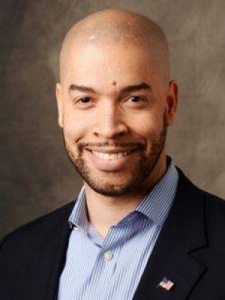
1. As President of the Jason Howell Company, a CERTIFIED FINANCIAL PLANNER™ professional, and a former U.S. Congressional candidate, you have a very extensive background in finance and politics. What inspired you to share your knowledge with American families through your new book, Joy of Financial Planning?
When I left politics, I became a financial planner so I could make a living while still serving the community. What I found over the years is that only so many people could choose to hire a true financial planner. Writing the book was a way to reach a larger audience who wanted (needed) the information, regardless of their ability to hire a professional.
2. In the preface of your book, you address the idealization of the “American Dream”, and how it has evolved over time as a result of inflation and other economic challenges. What does it mean for us as Gen X’ers and Millennials to reclaim our American Dreams?
It means we have a chance to transform our pessimism into optimism; our confusion into clarity, our passion into action; and our potential into real life success. This generation of adults has so much potential but we need the success principles of financial planning more than any other generation in US history. We face unique economic challenges but we also have unique opportunities. This is the generation that will face the effects of climate change, social unrest and income inequality. The “JOY of Financial Planning” allows us, through intentional actions, to solve problems and create opportunities for ourselves, our families and our communities.
3. You outline the steps that we can take to reclaim our American Dreams in seven distinct parts. Why did you choose to structure the book this way? What was your writing and researching process like?
I separated the book into seven distinct sections so people weren’t overwhelmed. In my family wealth practice, I have found that clients usually come to the table with a particular financial struggle that has their attention. Without that attention, they would have never picked up the phone and I wouldn’t have been able to show them all of their other opportunities. What I wanted readers of the book to be able to do was skip to what has their attention and discover the rest over time. My writing process was a mix of research, personal and professional experience. Unlike many of the other “personal finance gurus” I am still in practice as a CERTIFIED FINANCIAL PLANNER™ professional. This means I face real problems from real families and work to solve them in a current, practical way. And my personal financial situation is reflective of the dual-income professionals my firm tends to attract. Readers will enjoy that the book is a mix of academic, professional and personal content.
4. You are a very active alumnus of George Mason University, where you were recognized as a Prominent Patriot in business and was twice the distinguished alumnus speaker for the School of Business graduating class. During one of your keynote speeches, you notably said the following quote:
“Twenty-one years ago, somebody told me I was going to be an alumnus. I had no idea what that actually meant. I think it means you come back.”
Why do you feel it is so important to give back to your school, and to share your experiences and knowledge with aspiring businessmen and women?
George Mason University was good to me. My experience was more valuable and rich than I expected. I believe everyone of us has value to share and it’s not just a nice thing to do, it is necessary. Academic institutions require resources from the state, from the faculty, from the staff and from the alumni to remain relevant in an ever changing society. Northern Virginia is a great example of a thriving, changing society and “coming back” to Mason is my way of contributing to a community that I have benefited from for over 30 years.
5. What are the key takeaways from the book that you hope will help readers to take ownership of their financial joy and success?
I hope readers recognize that we can still achieve our potential and reclaim their version of the American Dream. And with that reassurance, I hope readers talk more regularly about money with their significant others, write down their personal values and aspirations, balance their priorities and make the best use of their time on earth. I bet you thought I’d say something like reduce debt right? Yes, that’s in the book but the takeaways listed here are just as important.
Get your copy of Joy of Financial Planning at the Amplify Bookstore.
To learn more about Jason, visit www.joyoffinancialplanning.com and www.Jason Howell.com, and follow him on Twitter, Facebook, LinkedIn, and Amazon.
620 Herndon Parkway, Suite 220|
Herndon, Virginia 20170
|
Phone: 703-437-3584|
Fax: 703-437-3554|
info@amplifypublishing.com
All rights reserved.